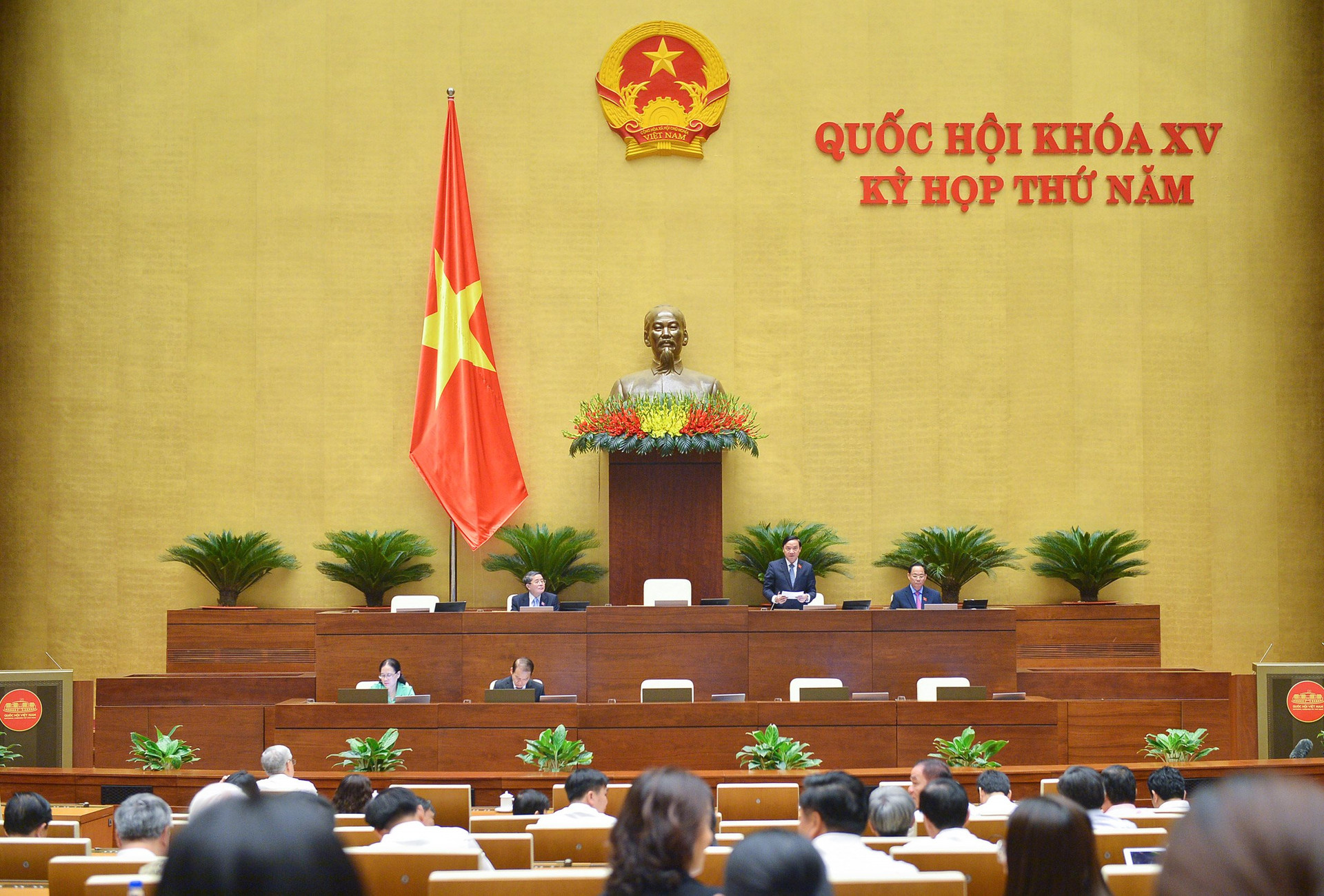
Continuing the 5th Session, on the morning of June 2, under the direction of Vice Chairman of the National Assembly Nguyen Khac Dinh, the National Assembly passed the Resolution on the Law and Ordinance Building Program for 2024, adjusting the Law and Ordinance Building Program for 2023 with 90.28% of delegates voting in favor.
After listening to the report of the Standing Committee of the National Assembly, Chairman of the Law Committee of the National Assembly Hoang Thanh Tung on the explanation, acceptance and revision of the draft Resolution on the Law and Ordinance Development Program in 2024, adjusting the Law and Ordinance Development Program in 2023, the National Assembly voted to pass the draft Resolution. The results of the electronic voting showed that 446 delegates voted in favor (accounting for 90.28%). Thus, with the majority of delegates in favor, the National Assembly officially passed the Resolution on the Law and Ordinance Development Program in 2024, adjusting the Law and Ordinance Development Program in 2023.
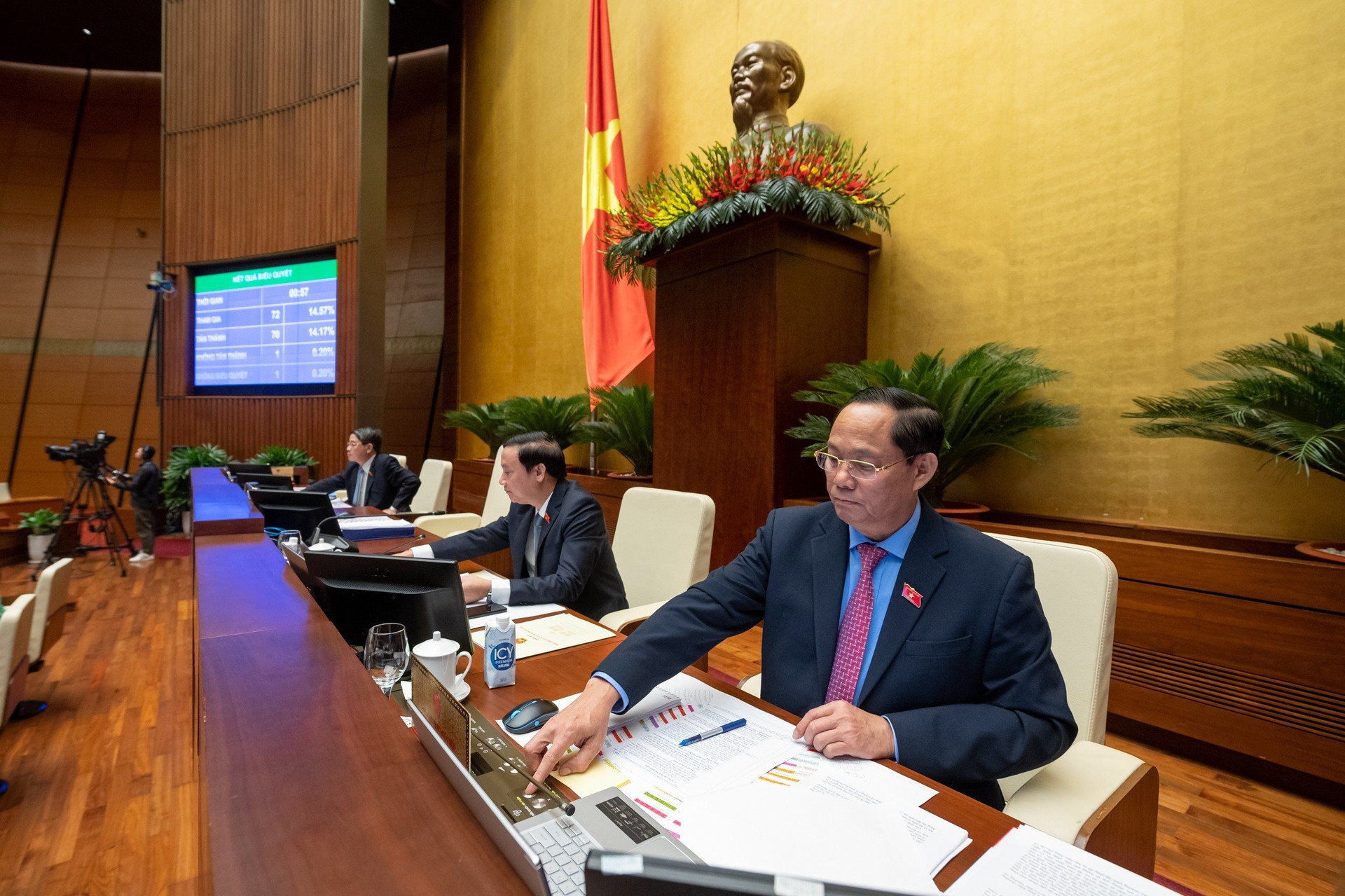
According to the Resolution, the 2023 Law and Ordinance Development Program is supplemented as follows: Submit to the National Assembly for comments at the 5th session (May 2023), approve at the 6th session (October 2023) the draft Law on Forces Participating in Protecting Security and Order at the Grassroots Level; Submit to the National Assembly for comments at the 6th session (October 2023) on 06 draft laws (Law on National Defense Industry, Security and Industrial Mobilization; Law on Roads; Law on Road Traffic Order and Safety; Law on the Capital (amended); Law on Organization of People's Courts (amended); Law on amending and supplementing a number of articles of the Law on Property Auction);...
Regarding the 2024 Law and Ordinance Development Program, at the 7th Session (May 2024), the National Assembly will submit 09 laws and 01 resolution for approval: Law on Social Insurance (amended); Law on Archives (amended); Law on National Defense Industry, Security and Industrial Mobilization; Law on Roads; Law on Road Traffic Order and Safety; Law on the Capital (amended); Law on Organization of People's Courts (amended); Law on amending and supplementing a number of articles of the Law on Guards (according to the procedure at a session); Law on amending and supplementing a number of articles of the Law on Property Auction; Resolution of the National Assembly on the 2025 Law and Ordinance Development Program, adjusting the 2024 Law and Ordinance Development Program.
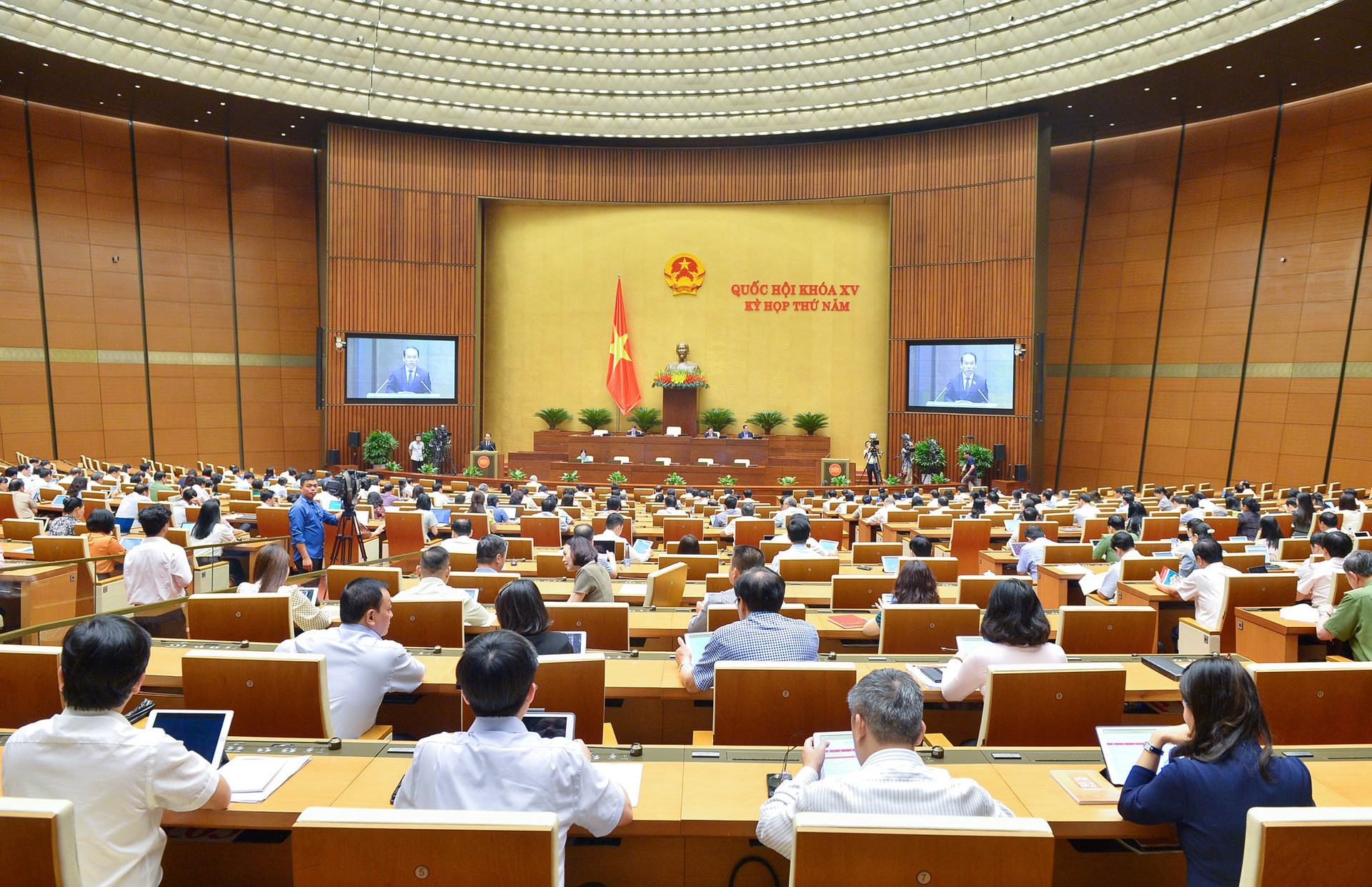
At the same time, submit to the National Assembly for comments 09 draft laws: Law on Notarization (amended); Law on Trade Unions (amended); Law on Cultural Heritage (amended); Law on Geology and Minerals; Law on People's Air Defense; Law on Urban and Rural Planning; Law on Juvenile Justice; Law on amending and supplementing a number of articles of the Law on Pharmacy; Law on amending and supplementing a number of articles of the Law on Technical Standards and Regulations.
At the 8th Session (October 2024), the National Assembly will pass 9 laws: Law on Notarization (amended); Law on Trade Unions (amended); Law on Cultural Heritage (amended); Law on Geology and Minerals; Law on People's Air Defense; Law on Urban and Rural Planning; Law on Juvenile Justice; Law on amending and supplementing a number of articles of the Law on Pharmacy; Law on amending and supplementing a number of articles of the Law on Technical Standards and Regulations.
Also at the 8th session, the National Assembly will give opinions on the draft Law on Gender Transition and the draft Law on Employment (amended).
To organize the implementation, the Resolution requires: The National Assembly Standing Committee, the Government, agencies, organizations and individuals participating in the law-making process to promote responsibility, strengthen discipline and order; ensure strict implementation of the Law and Ordinance Development Program; not propose to add projects to the Program close to the National Assembly session, except in cases of real necessity and urgency, requiring timely implementation of the Party's guidelines and policies, conclusions and directions of the Politburo and the Secretariat; thoroughly overcome the situation of sending project dossiers and drafts not within the prescribed time limit. In case of necessity, the National Assembly Standing Committee shall report to the National Assembly for consideration of organizing additional sessions or extending the regular meeting time of the National Assembly, dividing the sessions into sessions to consider giving opinions, and passing many laws and resolutions to meet practical requirements.
The National Assembly Standing Committee, the Government, the Supreme People's Court, the Supreme People's Procuracy, the State Audit and relevant agencies and organizations focus on directing the implementation of legislative tasks assigned in Plan No. 81/KH-UBTVQH15 and additional tasks (if any), ensuring progress and quality; for contents identified as having shortcomings, needing to be amended, supplemented or newly issued laws, ordinances and resolutions, promptly prepare dossiers to propose drafting documents according to regulations, submit to the National Assembly and the National Assembly Standing Committee for consideration and inclusion in the Program, ensuring the priority order of urgency of promulgation, feasibility of the Program, and harmonious balance with the workload of the National Assembly.
In addition, the agencies, organizations and individuals assigned to preside over the drafting must strictly and substantially summarize the implementation of the law, assess the impact of the policy, collect and absorb the opinions of agencies, organizations, individuals and subjects affected, ensuring practicality and effectiveness. The drafting must have high requirements on quality, closely follow and promptly institutionalize the Party's policies and guidelines, meet the requirements of practice; comply with the requirements in Conclusion No. 19-KL/TW of the Politburo and the principles of drafting and promulgating legal documents. Carefully review relevant documents to detect and handle inconsistent regulations; ensure that there are no conflicts, overlaps, or loopholes that could lead to corruption, negativity, and the insertion of "group interests" and "local interests" in the proposal, formulation and promulgation of policies and laws, etc.
Source



![[Photo] Anh Hoang - Dinh Duc successfully defended the men's doubles championship of the National Table Tennis Championship of Nhan Dan Newspaper](https://vphoto.vietnam.vn/thumb/1200x675/vietnam/resource/IMAGE/2025/5/23/d6ab3bcac02c49928b38c729d795cac6)
![[Photo] Top players gather at the 2025 Nhan Dan Newspaper National Table Tennis Championship](https://vphoto.vietnam.vn/thumb/1200x675/vietnam/resource/IMAGE/2025/5/23/9ad5f6f4faf146b08335e5c446edb107)



















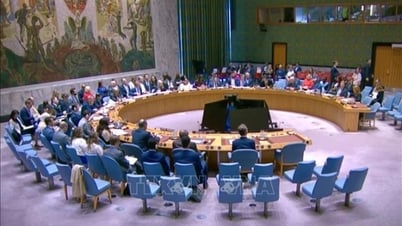
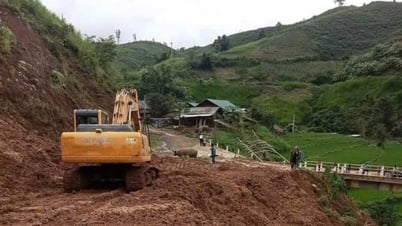



























































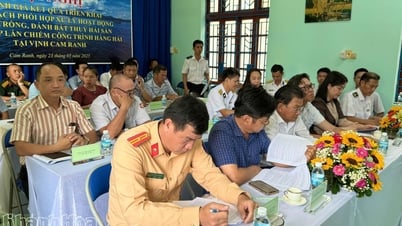


















Comment (0)